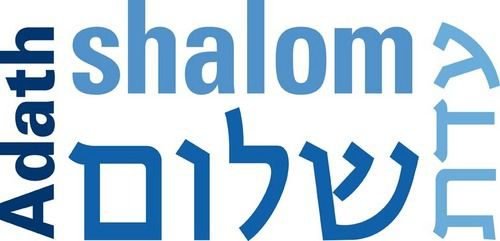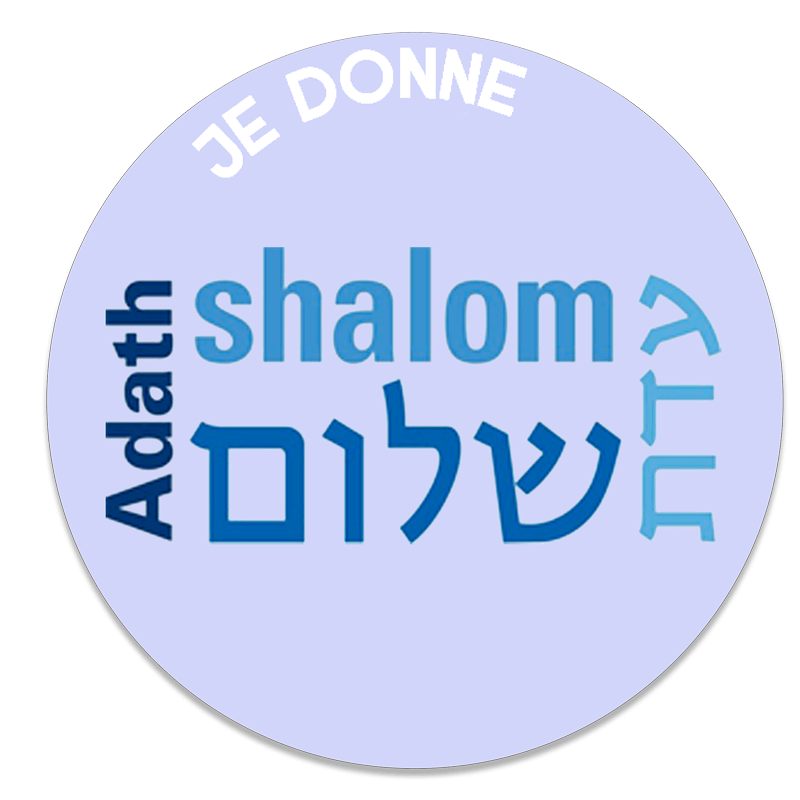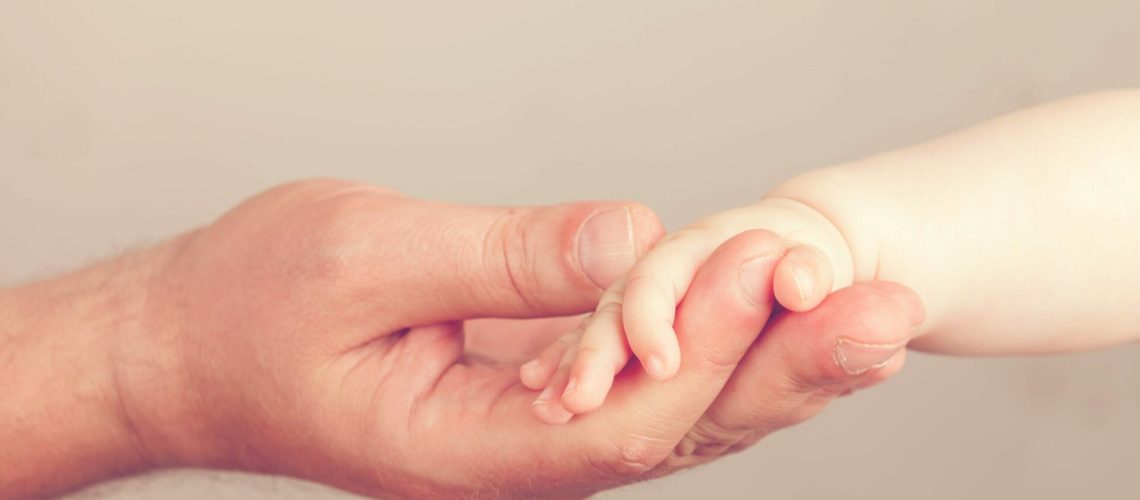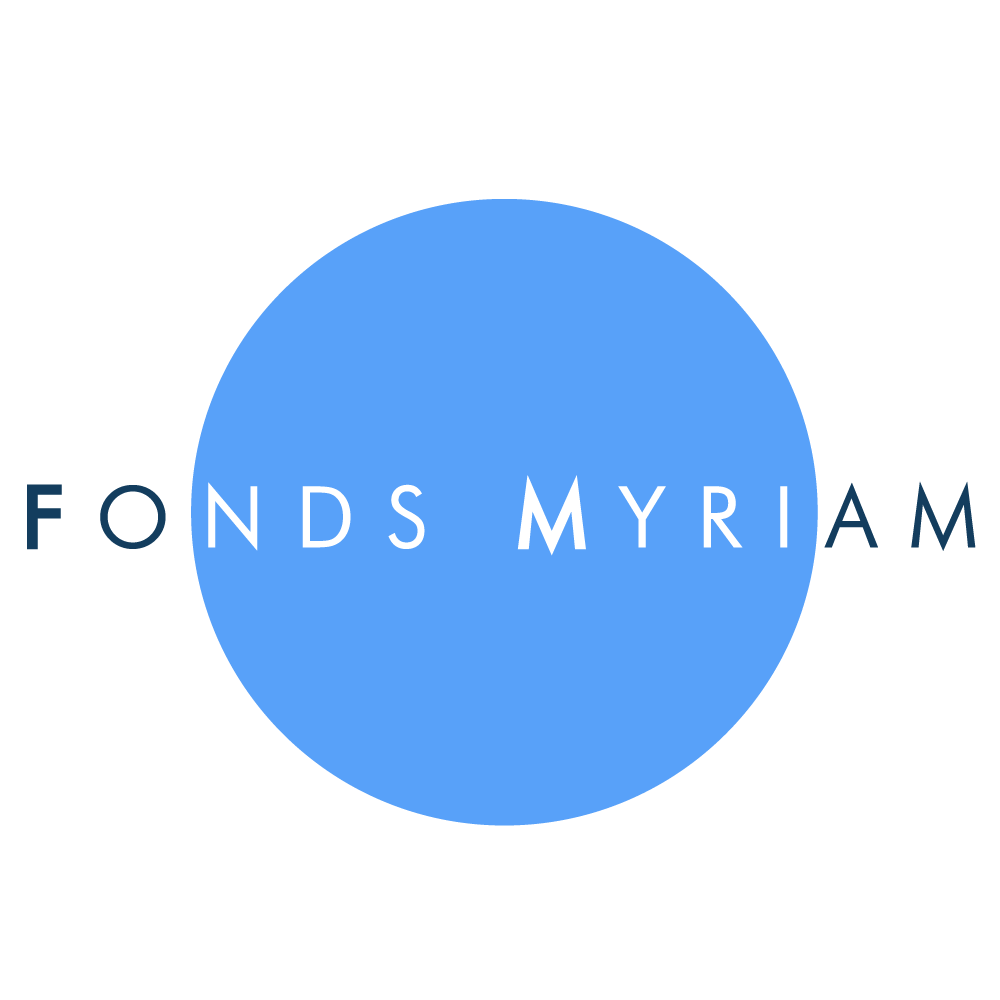Rabbi Josh Weiner’s drasha for Yom Kippur 5783
Hag Same’ah !
There was a moment on Rosh Hashana when Aline introduced me as the second rabbi of Adath Shalom, when I had a sudden realisation, perhaps too late, that I’ve become a professional Jew. Meaning, I have to care about Shabbat and the festivals and prayer and the synagogue, I have to want to be here – and if not, if one day I change my mind and feel that Judaism is all wrong – then my livelihood is gone, my family will go hungry, and I’ll be lost.
Maybe I exaggerate a little bit, but that realisation has stayed with me for the last ten days. In a way, everybody in this room is on a higher spiritual level than me. You are here of your own volition, without an obvious reward for being here or negative consequences for staying away.
The truth is that I also want to be here, but now that I have this title of Rabbi, I will always be suspect when I declare that. Forgive me for starting my drasha with these thoughts, which I should probably have figured out a long time ago, but it’s important to share them because freedom is so central to what we are doing here today on Yom Kippour. There is a need for an internal liberty in order for the words change, sin, repentance, or forgiveness to mean anything at all. This is one of the reasons given by those who defend Maimonides’ choice not to consider teshuva, repentance, a commandment. How can something so internal be commanded, how can you be forced to want to change?
There is a michna from the tractate of Taanit, often quoted around this time of year, that describes Yom Kippour as one of the most joyous days of the year. I quote:
אָמַר רַבָּן שִׁמְעוֹן בֶּן גַּמְלִיאֵל, לֹא הָיוּ יָמִים טוֹבִים לְיִשְׂרָאֵל כַּחֲמִשָּׁה עָשָׂר בְּאָב וּכְיוֹם הַכִּפּוּרִים, שֶׁבָּהֶן בְּנוֹת יְרוּשָׁלַיִם יוֹצְאוֹת בִּכְלֵי לָבָן שְׁאוּלִין, שֶׁלֹּא לְבַיֵּשׁ אֶת מִי שֶׁאֵין לוֹ. כָּל הַכֵּלִים טְעוּנִין טְבִילָה. וּבְנוֹת יְרוּשָׁלַיִם יוֹצְאוֹת וְחוֹלוֹת בַּכְּרָמִים. וּמֶה הָיוּ אוֹמְרוֹת, בָּחוּר, שָׂא נָא עֵינֶיךָ וּרְאֵה, מָה אַתָּה בוֹרֵר לָךְ
“R. Simon b. Gamliel says: There is no greater festival in Israel than the days of Yom Kippur and the 15th of Av. On these days the children of Jerusalem go out dressed in white, borrowing such clothes if necessary so as not to be exposed to shame if one does not have them, except in this case to dip them in a legal bath (to avoid any doubtful contact). The daughters of Jerusalem go out in groups into the fields and vineyards, saying, young men, lift up your eyes and see whom you will choose.”
In the past I’ve spoken about this mishna showing that Yom Kippour is a happy day, and that love, beauty and joy play a central part in the day. Now I see another aspect here, that of choice. The dancing in the fields and in the vineyards, the erotic hide-and-seek, places Yom Kippour as a day of freedom, possibilities, beginnings and choices. Even the grand metaphors of the day, the day of judgement and the inscription in the Book of Life, are not as deterministic as they seem at first. The absurd notion of teshuva supposes that whatever God decides for us can be erased and rewritten, if we choose to become different people.
In some ways, in Paris 5783, we are freer today than we have ever been. Almost every Jewish act, and even the presentation of oneself as Jewish, is now a choice. In the past, two Jews would get married in a halachic wedding ceremony without even thinking about it. Today, it is a decision that they make together. For those of you who work as salaried employees, I imagine your employer is not forcing you to be here today. Nothing in French society rewards those who identify as religious, or who make choices according to their religion. One of the spiritual consequences of that is extremely positive, and transforms everything into an authentic conscious act. Most Jewish acts, including prayer, requires a level of intentionality that we term kavana. Even if I don’t understand the meaning of every word in Hebrew, the fact that I know that what I am saying is prayer, and that I am dedicating my time to it, this qualifies as at least the minimal level of kavana. I think the freedom of religion today allows a freedom in religion that makes it almost impossible to have no kavana when doing something Jewish, since every act is preceded by a choice.
I’m presenting this optimistically, and know that there are many areas in which we have very little, increasingly little, freedom. Whole research teams and dedicated algorithms have created an industry based on what can be guessed about how we will act today based on how we acted yesterday. If Facebook can predict who most people will vote for, the whole question of my freedom at the moment of voting is put into question. Dating apps, and the algorithms that choose, predict and propose potential partners, have brought into question the freedom and randomness that we thought underlies love.
Technology doesn’t only reflect determinism, by knowing in advance what we will choose, it also creates it, influencing what we desire, what makes us angry, our political and aesthetic tastes. If our kavana is precious in the synagogue, then it is now worth money – there are several companies competing for our focus in what’s known as the ‘attention economy’. And it’s not just technology, it’s also human nature to yield to inertia. Making real choices involves risks and energy, and the default is to find patterns of behaviour that work for us, and then stick to them without thinking too much. I’m sure that many people here can think of a big choice that they made in the last year – but many people would find it difficult to think of a significant example.
In the last few years I’ve been reading various works of Rabbi Kalonymous Kalman Shapira, a hasidic master known as the Piaseczner rebbe, or as the rebbe of the Warsaw ghetto. One of his most well-known works, the Ech Kodech, the holy fire, was written on scraps of paper hidden in a milk can and discovered by a construction worker after the holocaust. Another work was also discovered then, a personal diary with reflections on spiritual development, later published under the name ‘Tzav ve-Zeruz’,. In it, he presents a thought exercise for the new year. I quote:
“If you desire to serve the Divine and raise yourself to a higher consciousness, don’t stand at your seventieth birthday the same person you were at your Bar Mitzvah. Rather, do this. Every year, set yourself a goal. Imagine yourself: if your name is Reuben, for example, imagine what kind of Reuben you will be next year, what will his achievements, his engagement and his qualities be? This imaginary Reuben will be a way to measure yourself, always checking how far you are from reaching him. Are your daily worship and your self-development at a pace that will allow you to become that Reuben next year? And if the next year arrives, and you measure yourself and have not reached even to the level of Reuben’s shoes, let it be in your eyes as if you have (G-d forbid G-d forbid!) not achieved a long life. Because only last year’s Reuben, or the one of ten years ago, is alive, and not this year’s Reuben. This is the meaning of the verse “And Abraham was old, full of days” (Genesis 24:1) – Today’s Abraham was there today, and not yesterday’s.”
This text is challenging, and again questions our freedom. Which version of you is here today? Are you the person you hoped to be last year, or is last year’s ‘you’ sitting here now? The exercises of the Piaseczna Rebbe challenge us to value our ability to change above our comfort in who we are. Perhaps we don’t need to be as extreme as he was. How many people in the world envy the stability of those who don’t need to change, and don’t need to choose all the time. I want to step back from the advice of the Piaseczna Rebbe and also give some credit to stability. This is something that we don’t speak about enough during these days of Rosh Hashana and Kippour: Not everything needs to be a choice, and not everything needs to change every year.
Most of you know that I’m a father of a young boy, Amitai. In a few days from now, be’ezrat hachem, I will be the father of a young girl too. I’ve spent lots of time recently thinking about the concept of being a parent, and here too we encounter the concepts of choice and freedom, and their lack. Here, I found inspiration in a modern book called “The Obligated Self: Maternal Subjectivity and Jewish Thought”, by Mara Benjamin. She presents the following thesis. Yes, a certain series of choices lead to the position of being a parent. But once the child is born, one’s definition as a parent is absolute and irreversible. The child then begins to make enormous, impossible, infinite demands – which the author of the book identifies with mitzvot.
These demands, these laws of the child that obligate the mother or father, are not necessarily easy or even possible to fulfill. But it is also impossible to stop being obligated by them. The position of the parents is no longer a choice, it is a fact that can’t be changed. One can change the details of how they act, make mistakes, be more present or more absent, do teshuva, make guesses and choices about how best to raise the child – but all this begins with a place in which there is no longer any choice or freedom.
The essence of the day today is teshuva, without a doubt. But if I would dare to add to the words of the Piaseczna Rebbe, who wanted us to always be thinking about next year’s version of ourselves and how to achieve that – I would add that we also need to appreciate those parts of ourselves which will never change.
This day is long, and between the prayers, maybe we will find some minutes to really take seriously the challenge of teshuva, use the precious liberty we have and make some courageous choices, maybe just one, for the coming year. But when we find those minutes for introspection, we can also reflect on those areas of our lives in which we’ve lost our freedom, which have become facts, and celebrate that.
It is from that place of stability that we can actually make the choices that are important. And I am looking forward in the coming year and years, to getting to know everybody here and hearing about the choices that they’ve made.
Tzom kal, gmar hatima tova, hag sameah.
